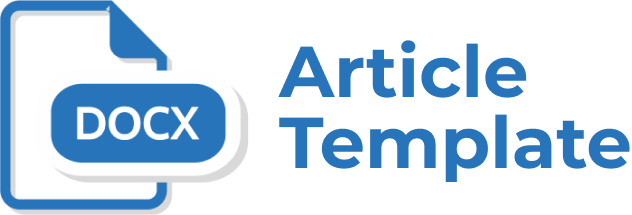The Educational Values of Anti-Corruption in The Textbook of Poetry Appreciation
Abstract
This study aims to illustrate the educational values of anti-corruption in the textbook of poetry appreciation. The educational values of anti-corruption analyzed in the textbook of poetry appreciation consist of nine values, namely honesty, care, independence, discipline, responsibility, hardworking, simplicity, audacity, and justice. From those nine values, it can be found that there are six educational values which are care, independence, hardworking, simplicity, audacity, and justice. Among those six values, the social justice is the paramount value emerging in the book. It happens because critical poetries are tremendously displayed in the book. Apart of this result, it can be stated that the educational values of Anti-Corruption are the effort of putting anti-corruption character into college students in order to actualize the Republic of Indonesia which is clean and free from threat of corruption.
Full Text:
PDFReferences
Anedo, O. A.. (2011). “The Place of Poetry in Contemporary Chinese and Igbo Politics”. African Journal of Political Science and International Relations Vol. 5(6), pp. 271-282, June 2011
Arifin, Syamsul and Adi Kusrianto. (2009). Sukses Menulis Buku Ajar dan Rerefensi. Jakarta: PT Grasindo.
Balitbang Kemendiknas. (2011). Pedoman Pelaksanaan Pendidikan Karakter. Jakarta: Pusat Kurikulum dan Perbukuan.
Battistich, Victor. (2010). “Character Education, Prevention, and Positive Youth Development”. http://www.rucharacter.org/file/Battistich%20Paper.pdf.
Berkowitz, Marvin W. and Melinda C. Bier .2004. “Research-Based Character Education” dalam The ANNALS of the American Academy of Political and Social Science 2004; 591; 72.
Bura, Romie O and Nanang T. Puspito. (2011). “Nilai dan Prinsip Anti Korupsi”. Dalam Pendidikan Antikorupsi untuk Perguruan Tinggi (Ed. Nanang T. Puspito). Jakarta: Kementerian Pendidikan dan Kebudayaan RI.
Indonesia Corruption Watch. (2016). “Kerugian Negara Akibat Korupsi Sebesar 3,1 Triliun”. Dalam www.antikorupsi.org
Joshepson, Michael. (2007). Making Ethical Decisions. Josephson Institute of Ethics.
Lickona, Thomas. (1996). “Eleven Principles of Effective Character Education” dalam Journal of Moral Education. Vol. 25, No. 1, 93 – 100.
Lickona, Thomas and Matthew Davidson. (2005). Smart & Good High Schools: Integrating Excellence and Ethics for Success in School, Work, and Beyond. Washington DC: Character Education Partnership.
Nurinten, Dinar, et.al. 2016. “Kearifan Lokal Sebagai Media Pendidikan Karakter Antikorupsi pada Anak Usia Dini Melalui Strategi Dongkrak”. Jurnal Integritas Volume 2 No 1 August 2016.
Obrazovni. (2009). Definition of a textbook. http://www.carnet.hr/referalni/obrazovni/ en/iom/littextbook/com.html
Rendra, W.S. (1982). “Saya Punya mental Juara” on Horison No. 11, 1982
Sofia, Asriana Issa. (2011). “Model Pembelajaran Mata Kuliah Pendidikan Antikorupsi”. On Pendidikan Anti Korupsi untuk Perguruan Tinggi (Ed. Nanang T. Puspito). Jakarta: Kementerian Pendidikan dan Kebudayaan RI.
Sofyan, Herminarto. (1997). Pedoman Umum Pengembangan Bahan Ajar Sekolah Menengah Kejuruan (SMK). Yogyakarta: TIM Peneliti Bahan Ajar FPTK IKIP Yogyakarta. (http://fasilitas.itgo.com/buku/PEDOA.htm)
Srestha, A. P. (2000). “Protest Poetry: The Voice of Conciences”. CNAS Journal Vol 27, No 2 (July 2000)
Transparency International. (2015). “Corruption Perceptions Index 2015”. on www.ti.or.id
Waluyo, Herman J.. (2008). Pengkajian dan Apresiasi Puisi. Salatiga: Widya Sari.
Refbacks
- There are currently no refbacks.


